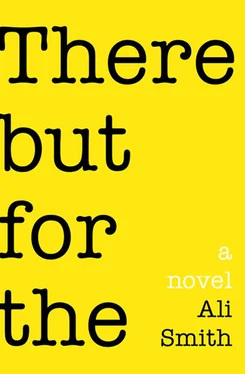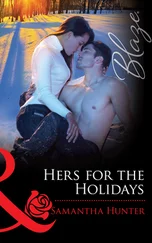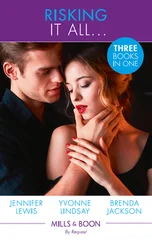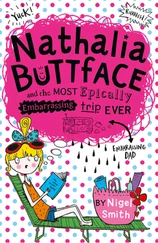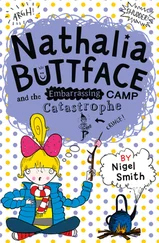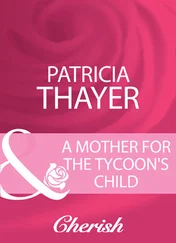Ha! Hugo says.
Don’t knock civilization, Richard says. Personally I think it ought to be against the law to knock civilization.
It probably is, Terence says. I may need a lawyer sooner than I thought.
Nasty, British and short, Miles says.
You what, Miles? Richard says.
Team of solicitors I occasionally work for, Miles says.
Ha ha! Bernice says.
I don’t think I get your meaning, Miles, Richard says.
Who’s been to the theatre recently? Jen says. Anyone? Holidays. Terence! Bernice! Where are you going on holiday this year? Or maybe you’ve been? Where did you—
Oh, I’m really proud of being British, me, Hugo says. I’m very big on the choice of toothpaste we have these days. That’s what I call global choice. It’s great, living in such a multivalent universe and having so much choice. I am what I listen to on my iPod. And I love it that so many databases can find out at the flick of a button just exactly what my favourite toothpaste or music is, as well as all the other things they can know about me, like my date of birth, how much money I have, how I spend my money, who I phone, where I go, things like that. We’ve really used our talents well as a species, when it comes to freedom.
It’ll be Iraq, Caroline says, any minute, here we go again.
She rolls her eyes.
The fact is, the child says, that there were astrolabes in Baghdad, where the Iraq war was, probably before anywhere else in history, and definitely in 1294.
What’s an astrolabe, Brooke? Eric says.
It means an instrument for finding the positions of stars and planets, Mr. Lee, the child says.
Then she recites the names of the Astronomers Royal out loud. Flamsteed, Halley, Bradley, Bliss, Maskelyne, Pond, Airy …
Mark leans behind Richard to talk to Terence.
Is there a book you can recommend to me, maybe, about the Gershwins, or about that man you were talking about who wrote the songs? he says.
Easiest thing in the world, Terence says. With great pleasure. I can think of about four good ones off the top of my head.
They’re making a secret assignation, Richard says. Talking arty behind my back.
Oh no, don’t talk arty, Hannah says. I hate it when it comes round to the talking arty bit. I hate it.
No, you see, I have to say this, because the thing is, I’ve said it before and I’ll say it again, I like going into the supermarket and seeing all the toothpaste there so new and clean and waiting, Caroline says. And I don’t see why something that gives me pleasure and makes me feel safe has to be a problem, why it has to be a problem that I like the feeling it gives me.
Warhol, Hugo says. If you see something duplicated over and over you’ll want it. You won’t be able to forget it. You’ll fall for it. You fell for it. Moronic. That’s what Warhol’s doing. He’s pointing out the moronic.
I like there being a choice of toothpastes, Caroline says. It makes me feel, well, real. But apparently I’m a moron who doesn’t understand or like modern art. Well, I don’t. I’m coming out, Mark, and I’m telling the whole table. I’m not a snob. I like to see a beautiful thing if I go to an art gallery as much as the next person. But contemporary art, I don’t like it, and most of the time I don’t understand it. Most of the time it’s so pointless.
There’s some good children’s literature out there, though, isn’t there? Jen says.
Almost on cue, the child sitting next to her puts her head down on her arm on the table. A moment later she is completely asleep.
Caroline, meanwhile, won’t be dissuaded, is red in the face, is shaking her head.
I mean, the songs and films you were talking about, Terence, they have an entertainment value at least, she says.
Depending what you class as entertainment, Richard says.
But it doesn’t change anything, Caroline says.
Actually, that’s debatable — Terence begins, but Hugo and Caroline cut him off.
Moron, Hugo is saying sweetly.
And neither does that woman artist’s pointless awful bed and pointless garden shed, Caroline is saying, or the pointless skull encrusted with diamonds, and that pointless artist who had the lights coming on and off in the room. It doesn’t make anything happen.
Well, Miles says. It does.
What does it make happen? Caroline says.
It makes the lights go on and off, Miles says.
He picks up Hugo’s glass of red, raises it at Eric and then at Jen.
A toast to our hosts, he says. To the Lees.
To the Lees of happiness, Bernice says.
To the Lees! everybody shouts. Hugo is quite drunk, doesn’t notice his red is gone and raises his white glass. While they’re all drinking, Miles puts Hugo’s glass of red down in front of Mark.
Then he leaves the room.
Caroline continues about how pointless art is.
No, Hugo says shaking his head too, I can’t believe I’m going to have to have this argument again about it. And the very fact that everybody goes on and on about the same people, as if art didn’t exist outside the tabloids. Emin and Hirst and so on, they’re old hat already, they get in the way of what their art does, and part of me is starting to believe they’ve become such a cliché precisely so that people can say exactly the tripe you’ve been saying and you’re about to say, and so there can be some kind of debate, not that I’d call it much of a debate by the way. But I won’t have it said, when there’s so much new art that’s so interrogatory, that subverts the things that need subverting, that challenges all the right preconceptions.
Here we go again, Hannah says.
The secret of life is art, Bernice says. That’s what Oscar Wilde said.
The secret of arty talk is death, Hannah says and draws her finger across her neck and makes a choking noise.
I don’t care what he says, Caroline says pointing at Hugo who has taken on a piqued, supercilious look. All those words you use all the time, darling, about it, like enhance and retro and articulate and interrogate.
Money and power, Richard says. The real magic words.
Yes, Caroline says, and that’s why I’m almost glad there’s been a recession, sorry Jen, because maybe it’ll shake up some of the stupid money there is in things like financial markets round the art he’s always going on about. The kind of art you go on about, where people put themselves in glass cases in a gallery and get looked at, or sell all their belongings, or someone casts the hole in a doughnut in plaster and calls it The Hole From Inside A Doughnut, or fills an old tree trunk with concrete and calls it whatever, it’s all a con. Art. No art has ever really changed anything. That’s the bottom line. Full stop. Show me something that a work of so-called art has ever really done, anything in the world, except give people a migraine.
Hannah yawns audibly.
Art is stupid, she says.
But what about that boy, Mark says, in Germany, the boy who set up the resistance movement with his sister, I can’t remember their names, in the Second World War?
Everybody turns to look at him. It is quite frightening.
The boy was in the Hitler Youth, he says, and he was reading a book one day, he was really enjoying it, until his troop leader found him reading it and gave him a severe warning because it was by a, a Jewish writer, it was a banned book. And the boy was so incensed that this really good book he’d been reading had been banned — was the wrong kind of book, the wrong kind of art, if you like, written by the wrong kind of writer — that he thought twice, he began to ask questions about what was happening, and then, it turns out, he went on with his sister, Sophie Scholl, their name was Scholl, to do this stellar work, to try to change things, make it possible for people to think, I mean differently. And they fought back, and they did change things. They did a lot of good before they were caught. And they were killed for it, his sister and him, the Nazi authorities took them to court, tried them, and they spoke out bravely, and were sentenced to death for treason, the Nazis cut their heads off, I believe.
Читать дальше
